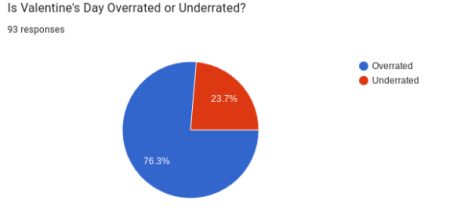The Finality of Finals
May 22, 2021
Finals– when you hear that word, what’s the first thought that comes to mind? For most people, it isn’t positive…anxiety, failing, stress, dread. Maybe it’s not even a word. Maybe it’s an action, such as an eye roll, a head drop, a deep exhale or a bad flashback with a groan.
Why did “High School Musical” fail to tell us about this part of the school year? Somehow they managed to leave it out. Why?
Well, for most students, it’s not exactly our favorite time of the year. So, if all this negativity surrounds finals, then it might just be time to change the status quo.
Dr. Jennifer Graham-Engeland, who is an associate professor of Biobehavioral Health at Penn State University and the Director of the Stress & Health Lab, explained the “effects of psychological stress and stress responses on physical health.” She also included information on students’ physical as well as mental responses to finals week.
Dr. Graham-Engeland introduces the negative effects finals can have on students: “There are many ways in which stress can manifest [and] impair health and well-being.”
Having finals is not something that has a major positive impact on students in the long run. In the short run, though, they may redeem students if a student didn’t do well during the year. Or, finals may help by showing staff some of the knowledge gained by the students, but is all of this testing really necessary for those two reasons, or do the negative effects outweigh the positive?
As a freshman, I haven’t experienced all of the struggles students have had to go through during finals week– studying hours at a time and pulling all-nighters, but I have definitely heard about it.
Quentin Wright, junior, described what can happen during finals week.
“I have… known students who have cried and had anxiety attacks during the day when we are taking finals,” Wright said. “Why would the school keep something in place that is the source of so much negativity, hatred and anxiety?”
What I do know, then, is that having finals doesn’t just potentially affect a student’s GPA; it affects the student’s emotions, and those feelings can stick around for the long haul.
Dr. Graham-Engeland conducted a study in 2018, which showed “a common phenomenon [found after studying the effects of finals] is negative mood (anxiety, sadness, anger), which, when prolonged by rumination, can lead to exacerbated physiological stress responses.”
While the negatives of finals seem clear, there are reasons behind having to take these tests, such as preparing students for college when finals tend to be the primary form of assessment.
“Finals are just an added stressor before the end of the semester…. [But,] finals are a good way to test students’ knowledge…[and] allow you to see how much you have learned during the semester,” Marisa Spada, junior, said.
But schools could consider more effective strategies to test students’ knowledge.
While English Teacher Kristen Behrens had mixed feelings about getting rid of finals since she sees how they can prepare students for college, she also suggested, instead of students cramming for finals, they could participate in project-based learning.
Instead of having teachers give students a large test on all of the information they have learned throughout the year, project-based learning gives students a chance to show what they have learned through a project based on real-world problems that is often done over an extended period of time. It has been said by Edutopia, an organization that promotes innovation in teaching, that project-based learning has helped students obtain a deeper knowledge through other techniques and challenges.
“The result of transforming finals would give students a better chance of getting their grades up,” Behrens said.
While there are some arguments as to why schools should keep finals, those reasons don’t mean there aren’t changes that could be made to reduce student stress levels while giving them the chance to show the progress they have made throughout the school year.
For example, Spada said, “Finals should be weighted like a normal test. Making finals weigh less would allow both students and teachers to see how the semester went without all the stress built up around finals.”
Wright suggested a different approach.
If schools were to keep finals, he said, “it shouldn’t go toward our grade,… [and] there should only be two tests a day instead of four.”
The idea of having two tests a day would give the students’ minds a break as well as a chance to recover from the lengthy tests, therefore, increasing the rate of success during finals.
Schools need to realize that it doesn’t matter if a student is taking the highest or lowest level class, as all levels of students feel the stress of finals. What does matter is whether all the students grasp the topics they were learning throughout the school year and that they can show evidence of understanding.
